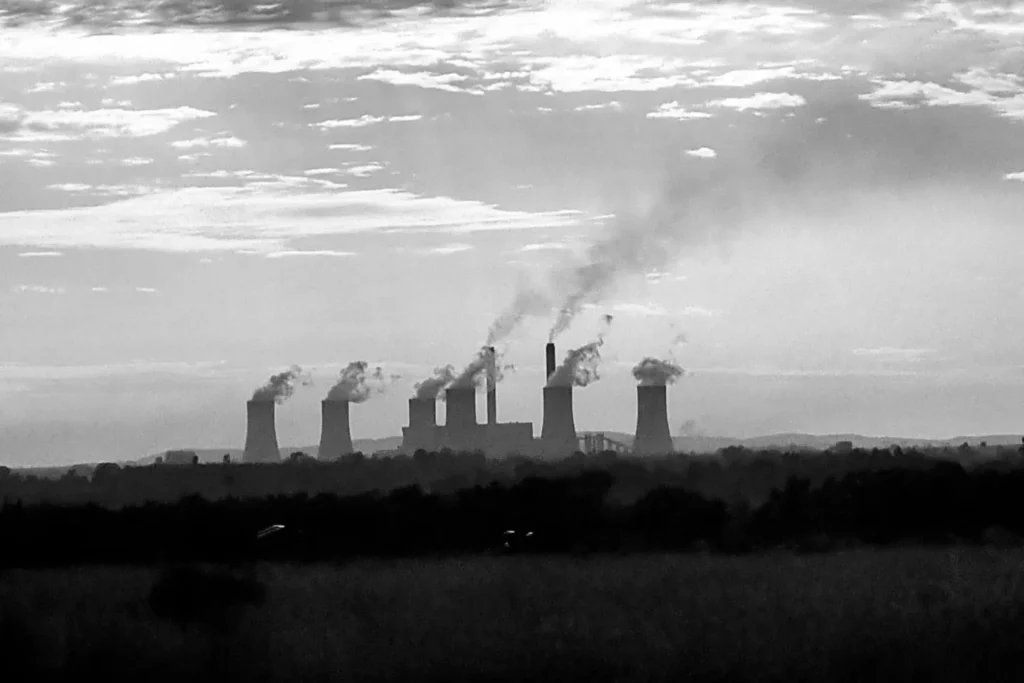PRETORIA, 20 June 2024 – More than 3,365 children under five years died because of air pollution related causes in South Africa during 2021, according to the fifth edition of the State of Global Air (SoGA) report. Of those deaths, 80 per cent occurred within 28-days of birth with ambient particulate matter, a result of vehicle fumes, coal burning power plants, and industrial activities, being the primary link.
The report, released today by the Health Effects Institute (HEI) and produced for the first time in partnership with UNICEF, shows that in total more than 34,000 deaths were linked to air pollution related causes across all ages in South Africa during 2021.
The health effects of exposure to air pollution includes premature birth, low birth weight, asthma, and lung diseases, all of which can be especially deadly for newborns and the youngest children. Beyond these deaths, many more people live with debilitating chronic diseases, putting tremendous strains on health care systems, economies, and societies.
“The immediate and longer-term health impacts on children due to air pollution are once again laid bare,” said Toby Fricker, UNICEF South Africa acting Representative. “This local data is critically important because it helps all of us to better understand the health impacts, to inform meaningful, child-focused action to reduce air pollution and protect children’s health,” added Fricker.
Globally, the report reveals that air pollution accounted for 8.1 million deaths in 2021, becoming the second leading risk factor for death, including for children under five years. The health impacts of air pollution have now moved ahead of tobacco and poor diet globally as a risk factor for death. Fine particles in the air, PM2.5 related air pollution, not only impacts people’s health but also contributes to the greenhouse gases that are warming the planet.
The release of the report comes as South Africa prepares its third Nationally Determined Contributions (NDCs) to be submitted in March 2025. These documents detail nations climate mitigation and adaptation commitments for achieving the goals of the Paris Climate Agreement, signed by 196 Parties in 2015.
UNICEF’s analysis of South Africa’s previous NDC submissions reveals that while there are child sensitive elements, more can be done to ensure all four child related criteria are met. The upcoming deadline for NDCs 3.0 provides a critical opportunity to ensure the inclusion of children and young people’s rights, including their specific needs, as well as their perspectives, in national climate policies.
UNICEF is urging South Africa and Governments globally to submit more ambitious NDCs which are implementable, unlock finance, and create a clear pathway for limiting global temperature rise to 1.5 degrees Celsius. The impact of more frequent heatwaves, storms, and flooding impacts most on the most vulnerable children and communities, such as those living in informal settlements and townships.
To super-charge climate action, UNICEF works with the rest of the UN system in South Africa and multiple partners to support the country’s ‘Just Energy Transition’, including focusing advocacy efforts to:
Engage with the Department of Forestry, Fisheries, and the Environment (DFFE), and other relevant partners, to increase the number of child sensitive Nationally Determined Contributions (NDCs) for submission by South Africa in March 2025.Work with the Department of Basic Education (DBE), and other partners, to integrate climate, energy and environment issues into formal and non-formal education and build skills and promote jobs for youth in green and climate-resilient activities.
Empower every child to be a champion for climate and environmental action through climate education, green skills, and communication.
####
Notes to editors:
UNICEF South Africa works to incorporate climate and environmental action and advocacy across its mandated areas of work including through:
Empowering every child through their life course to engage in and be a champion for climate and environmental action through climate education, green skills, and participation.
Engaging young ‘Enviro Champs’ through citizen science work and ‘Recycling Champs’ on community level environmental action and circular economy related work. Encouraging and incentivizing child and youth-led environmental and climate ideas and solutions through online platforms and digital challenges such as through the Youth Agency Marketplace and ‘The Green Rising’ initiative that is engaging some 10,000 young volunteers on practical environmental action.Supporting ‘Sport for Climate Change and the Environment’ and ‘Youth Environmental Reporters and Advocates’ through schools and community radio stations.
Protecting every child by adapting essential child services to a changing climate.
Promoting climate resilient water, sanitation and hygiene solutions.Incorporating renewable and sustainable energy solutions into health systems, such as solar powered vaccine cold chain facilities.Ensuring social protection grants reach the most vulnerable households.
Source link : https://www.unicef.org/southafrica/press-releases/air-pollution-accounted-some-3365-deaths-children-under-five-years-across-south
Author :
Publish date : 2024-06-20 08:36:27
Copyright for syndicated content belongs to the linked Source.
